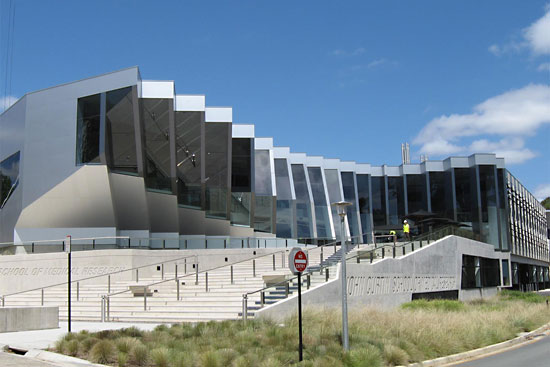ANU: Sexual abuse & computer vision researchers win PhD prizes
A researcher grappling with how to address sexual abuse and an engineer who helps computers learn how to see unfamiliar objects are the winners of the 2020 J.G. Crawford Prizes for their PhD theses.
Dr Meredith Edelman has been awarded for her thesis, “Judging the Church: Legal Systems and Accountability for Clerical Sexual Abuse of Children”, and Dr Shafin Rahman from the Research School of Engineering for his, “Zero-shot Learning: Recognition, Tagging, and Detection of Novel Concepts”.
Meredith’s supervisor, Distinguished Professor (Emeritus) John Braithwaite, says her work informs real-world policy and practice across various institutions looking for ways to tackle sexual abuse.
“Meredith’s research considers how to hold these actors and organisations to account-and in ways that reflect the needs and wishes of survivors,” John, from the ANU School of Regulation and Global Governance (RegNet), says.
“We at RegNet are so proud of how Meredith has tackled such a challenging issue of legal regulation to produce such important insights on how to prevent future suffering of children.”
Shafin’s supervisor, Dr Salman Khan, says Shafin’s thesis helped to address a significant challenge for computer vision.
“We know humans are particularly impressive in their ability to make a mental depiction of an unseen object if they are only provided with a natural language description,” Salman, from the ANU Research School of Engineering, says.
Salman says Shafin developed an innovative approach to the problem whereby a computer algorithm can both recognise and localise unfamiliar objects.
“Shafin was my first PhD student and it’s very satisfying to see him progress nicely through his PhD and get recognition for his work,” Salman says.
The J.G. Crawford Prizes were established in 1973 to recognise Sir John Crawford’s outstanding contributions to the University, both as Vice-Chancellor (1968-1973) and as Director of the Research School of Pacific Studies (1960-1967).
Each year, two prizes are awarded to PhD graduates – one in the science, medicine and engineering, and one in arts, Asia/Pacific, business and law. A third prize is available for a PhD graduate who has demonstrated outstanding ability in integrating and applying different fields, approaches and/or knowledge – there were no nominations for this category for the 2020 J.G. Crawford Prizes.
Professor Ann Evans, Dean for Higher Degree Research, congratulated this year’s winners of the J.G. Crawford Prizes.
“Every year we have the privilege of reading the highest level of scholarship conducted in our PhD programs,” Ann says.
“Theses nominated for the Crawford Prize represent the highest level of excellence in the nature of the research, it’s communication and presentation. I extend my warmest congratulations to Drs Rahman and Edelman for this recognition of their work.”
“This excellence in research is supported by dedicated supervisors who guide, challenge and encourage their candidates. They also celebrate these achievements.”

